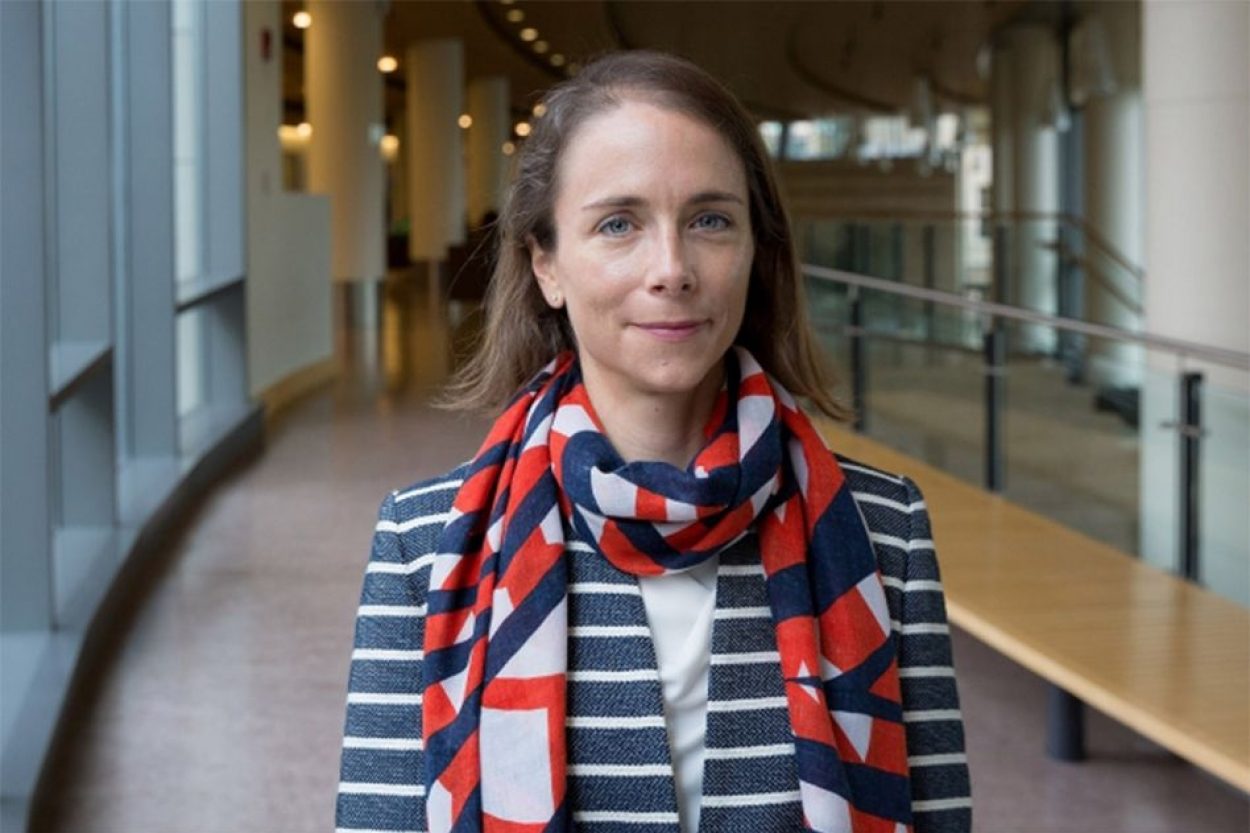A team led by MIT faculty has helped bring much-needed personal protective equipment (PPE) to New England, as part of the larger regional effort to fight the Covid-19 pandemic. The group, which calls itself the Covid-19 Policy Alliance, has been working on multiple projects, including equipment delivery, over the last several weeks.
“One goal of the Covid-19 Policy Alliance is to help the country and the world prepare for the coming waves of Covid-19 cases, on multiple fronts,” says Valerie Karplus, an assistant professor of global economics and management at the MIT Sloan School of Management, who is part of the group effort. “I am very excited to see how our team has been able to apply our understanding of the global supply chain to help buyers connect with reliable, high-quality supplies of personal protective equipment.”
Karplus is one of several MIT faculty who have played an organizing role in the effort, which is focused on delivering masks, gloves, and gowns, all critical items worn by front-line health care workers during the Covid-19 emergency. The team is also coordinating closely with other MIT efforts, such as those to collect and distribute PPE donations, among other projects.
Such PPE items improve safety conditions for health care providers by reducing their exposure to the coronavirus and making it less likely that medical personnel will also spread the illness. The exponential growth in Covid-19 cases has also put a premium on access to PPE items.
In addition to Karplus, members of the MIT community involved in the effort include Yasheng Huang, the Epoch Foundation International Professor of Management at MIT Sloan; Jennifer Gao, a research associate at MIT Sloan; and Katya Moniz PhD ’14, a microbial ecologist. The group has also been working to evaluate health care provider needs in the near future.
The Covid-19 Policy Alliance is co-led by Simon Johnson, the Ronald A. Kurtz Professor of Entrepreneurship at MIT Sloan; Kate Kellogg, the David J. McGrath Jr. (1959) Professor of Management and Innovation at MIT Sloan; and Retsef Levi, the J. Spencer Standish Professor of Management at MIT Sloan. The group’s aim is to build and support fast-moving solutions to the ongoing pandemic.
“The outpouring of effort and support from MIT alumni, students, staff, and faculty has been amazing,” Johnson says. “This PPE [delivery effort] is just one example of how the people of the institute have organized, from the grassroots, onto massively convergent pathways — all focused on reducing the human damage from Covid-19. The scale of this disastrous pandemic is enormous, but I know the brilliant humanity of MIT will fight it all the way.”
Levi adds, “This is an example how MIT-type system thinking, global supply chain management and economics, as well as analytics, all come together to identify the need, design a practical plan, and follow through with execution at a time of crisis, drawing on the ability to collaborate within MIT and outside MIT across the globe.”
The Covid-19 Policy Alliance has also partnered closely with Tom Sherman, a state senator and practicing doctor from New Hampshire, who serves as the group’s volunteer chief medical officer, and praises the can-do attitude of the participants.
“One of the unifying features of these MIT professors is [they feel] that if there’s this need, let’s get it done,” Sherman says. “That spirit is just pervasive in this MIT group — nothing is beyond our reach, no challenge is too great for us.”
In order to arrange the PPE shipments, the MIT faculty members drew on their accumulated working knowledge of global business and manufacturing, and partnered with a sourcing and logistics company that has long-established connections to China, where a substantial portion of PPE used globally is manufactured. Multiple members of the group have spent many years in China as students, researchers, and scholars.
The project was developed with the aim of delivering PPE despite the bottlenecks and challenges of procuring medical supplies during the pandemic.
“Locating and vetting reliable overseas supply and shipping options in the face of rapidly escalating demand is really tough,” Karplus says. “Jennifer Gao, Yasheng Huang, and Katya Moniz have been instrumental in this effort. At the same time, projected buyer needs are also constantly shifting. We saw an opportunity to connect the dots. Our hope is to prove out sources and approaches that can be used widely to ensure front line workers are protected and lives are saved.”
